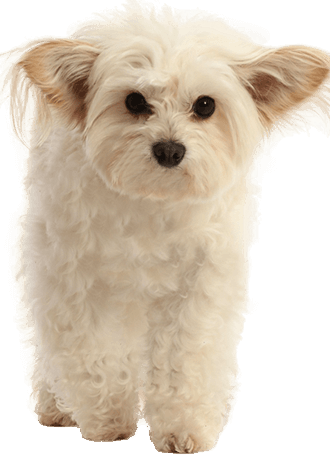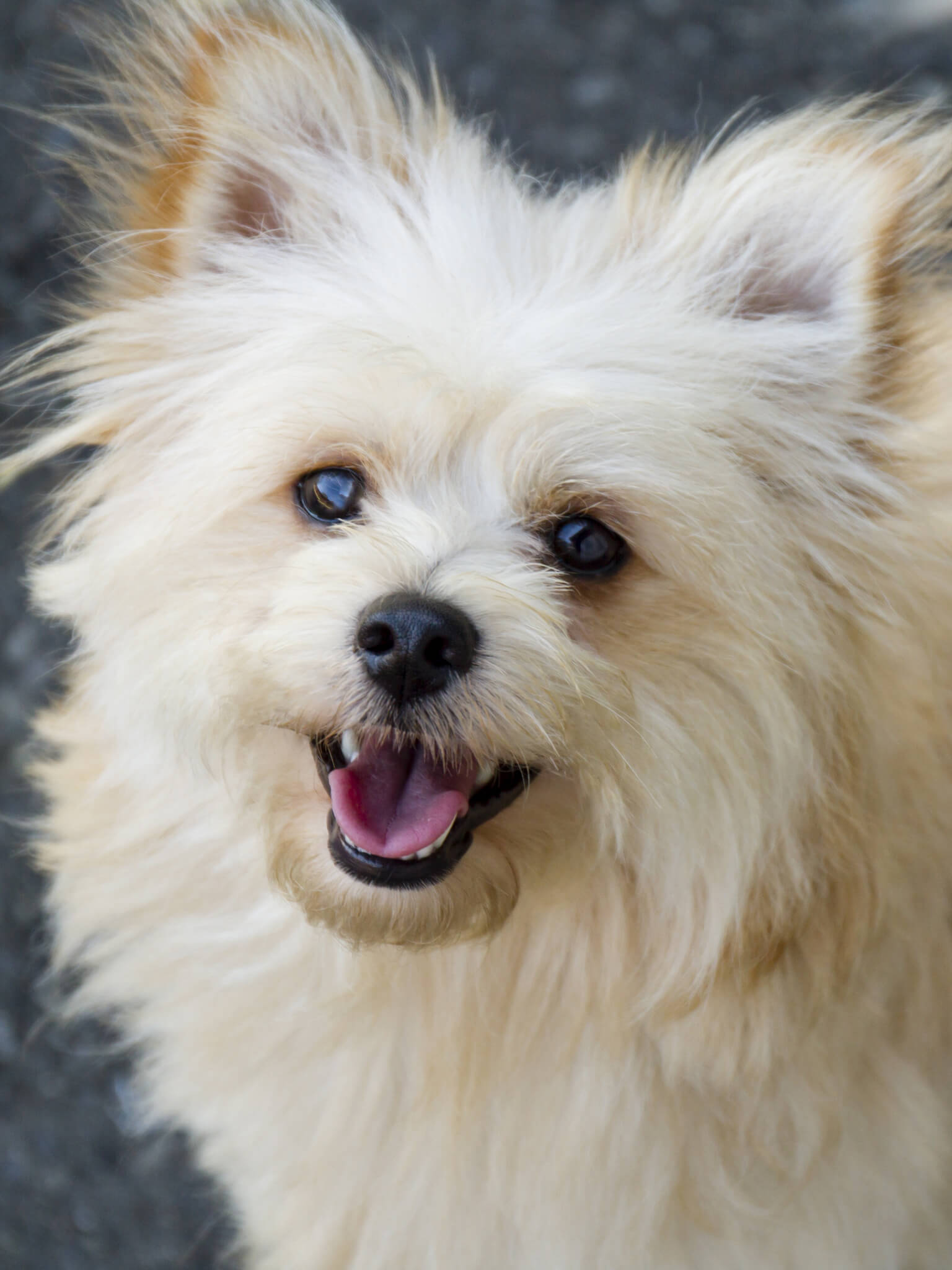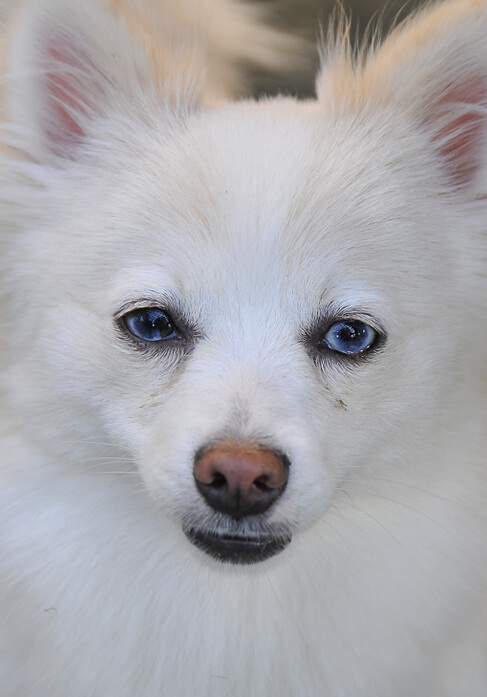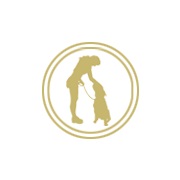Privacy Policy: Your email address is 100% safe.
We don't spam and hate it as much as you do :-) You can also unsubscribe from our mailing list at any time.

Sign Up
Pomapoo: Breed Characteristics, Care &
Exercise Needs (Pooranian)

Country of Origin, History of Pomapoos
There is no known date or person who started the Pomapoo breed, but it is believed it may have existed naturally over the years. However, it was only in the 1990s that designer dog breeders in North America mixed Pomeranian and Toy Poodles to develop Pomapoos to have an intelligent, affectionate companion dog. As demand for mixed breed dogs kept increasing, Pomapoos became more and more popular.
Pomapoo Tools
Breed Selector Tool - is the Pomapoo the right breed for you?
Is the Pomapoo the right breed for you and your family?
Find out by using our Free Dog Breed Selector Tool
Check Your Pomapoo's Learning Style
Are you aware dogs also have a learning style that can greatly affect their ability to housetrain as well as be trained correctly. Evaluate your Pomapoo's learning style and personality using our free Learning Style tool so that you are better able to provide him with the proper Pomapoo training methods.
Is your Pomapoo dominating over you?
Does your Pomapoo bark unnecessarily? Does your Pomapoo come to you when you call? Download a FREE Report on Dog Dominance for you and your Pomapoo and learn how to control your dog.
Do you make these mistakes with your Pomapoo?
Are you inadvertently snow-balling bad behavior in your Pomapoo? Evaluate your Dog Training Style from our Free Tool and learn how best to deal with your dog.
Pomapoo Calorie Calculator
Do you know how many calories your Pomapoo needs every day and how many cups of food you should be giving it every day? Click here to use our Pomapoo Calorie Calculator.

A General Appearance of the Dog
The Pomapoo is a cross between the Pomeranian and the Toy or Miniature Poodle. The appearance can vary dramatically as can the personality, depending on which breed’s traits each dog inherits.
The Pomapoo can have upward pointing ears or downward, floppy ears and its fur can be long and flowing like the Pomeranian or a combination fur or even more like a Poodle with its curls. The more the dog is like a Poodle, the more likely it will be hypoallergenic.
This dog is an intelligent and affectionate family member. He is good for apartment dwellers as well as families with kids, veteran dog owners as well as first-time owners, and people with a busy lifestyle as well as those who enjoy being active as long as he is not left alone for long periods. He is laid-back but happy and friendly with most people. Thorough socialization is necessary to keep them from being reserved when meeting new people. They bond strongly with their main caregiver.
Coat
The Pomapoo’s fur can be long and flowing like the Pomeranian or a combination fur or even more like a Poodle with its curls. The “typical” coat is short to medium length and straight or slightly wavy with very little shedding. If your dog sheds more or has a more Pomeranian type coat, it will not be as hypoallergenic as a dog with a more typical or Poodle coat. The colors of the coat include white, black, brown, red, fawn, and sable and can be solid or mixed colors.
The appearance of the Pomapoo depends on whether the puppy has more Pomeranian or Poodle. The head can be wedge-shaped or long and narrow like the Poodle. The ears can be upright and pointed or floppy and soft. Tails can be carried high or their back or straight.
Weight:
5 – 14 pounds
Height:
8 – 9 inches



Free Pomapoo Training Secrets
Free Course on Pomapoo Training & Obedience
Stop All Bad Behavior, Excessive Barking and Biting
Pomapoo Personality Traits

Temperament of the Dog
Pomapoos are very affectionate with all family members, but especially bonded with their main caregiver. Be sure to socialize them early and often so they do not take after their Pomeranian parent. They are prone to separation anxiety, so a household with someone home most of the day or a second dog is helpful.
The Pomapoo likes children, but needs supervision with younger children. He is very affectionate with his family, but friendly with most people. He is gentle and sweet and loves to bounce along next to you as you go places. If he tends to be more like his Pomeranian parent, he might be somewhat wary of new people.
Better suited to an indoor or outdoor lifestyle?
The Pomapoo must be an indoor dog. They are not happy by themselves or outdoors without their people.
Are they suited to homes with kids?
Pomapoos love children, but young children must be supervised when playing with them.
Training
Pomapoos are smart little dogs, but can be a little stubborn about learning what you are teaching. They love to learn things to show off. They need a strong leader to be their pack leader.


Free Pomapoo Training Secrets
Free Course on Pomapoo Training & Obedience
Stop All Bad Behavior, Excessive Barking and Biting
Pomapoo Activity Level
How active is the breed?
A nice, daily walk and some indoor or outdoor playtimes suffice to exercise the Pomapoo. They love to play with toys alone and especially with their people.
Grooming
Pomapoos need brushing a couple of times a week. They are not well suited to extreme weather, so light-colored dogs need sunscreen in the summer and a any Pomapoo will enjoy a coat or sweater in the winter. For some dogs a professional grooming periodically will be helpful. Rinse the dog with fresh water after a swim.
Clip their toenails at least one a month and brush their teeth at least three times a week. Their eyes may need frequent wiping and if they are light-colored, they may benefit from a product like Angel Eyes to keep the tears from staining their coats. Bathe as needed.


Free Pomapoo Training Secrets
Free Course on Pomapoo Training & Obedience
Stop All Bad Behavior, Excessive Barking and Biting
Health and Care
The Pomapoo is prone to patellar luxation (knee issues), epilepsy, Addison’s disease, LeggCalve Perthes Disease, cataracts, and eye infections. They also need to be watched for collapsed tracheas.
Life Span: 13 – 16 years
Litter Size:
4 – 6 puppies
National Breed Clubs
National Breed Clubs: none at this time
Other Recognition:
ACHC = American Canine Hybrid Club (Pom-A-Poo)
DBR = Designer Breed Registry (Pom a Poo)
DDKC = Designer Dogs Kennel Club (Pom-A-Poo)
DRA = Dog Registry of America, Inc.
IDCR = International Designer Canine Registry® (Pomapoo)
Group: Mixed Breed Dog.
AKC Popularity Ranking: Not recognized by AKC.
Also Known As: Pooranian, Pompoo, Pomeroodle, Pom-A-Poo, Pom A Poo, Poopom, Pomapoo, Pomadoodle, Pomeranianpoo, Pomeraniandoodle, Pomeroodle, Poopom
Train Your Pomapoo To Listen To You
Get Instant Access to Your Training Now - For Free
Sign up for our Free Pomapoo Mini Course to have a housebroken, obedient dog that happily comes to you every time you call.
You'll learn new commands to obedience-train your dog as well as how to housebreak your dog in 6 days or less.
You'll also learn how to eliminate bad habits like barking, nipping or biting, jumping, or pulling on the leash.Here's just s small fraction of what else you'll learn in the course:
How to lead and think like a pack dog - the new psychology.
3 dangerous mistakes that most Pompoo owners make when they are trying to potty train their dogs.
The 2 main reasons why your dog barks excessively and how to control its excessive barking.
How to obedience train your Pomapoo to permanently end behavioral problems like Jumping, Aggression, Pulling on Leash.
A surprisingly easy way to teach your dog cool new tricks.
How to improve your dog's lifespan and keep it from getting overly heavy with a healthy and nutritious diet.
Getting Pro help fast - how to get access to our expert trainers when you need them most.
One hidden psychological trigger that all Pomapoos have... that practically allows you to "analyze" and "control" your dog's every action.
Priority access to the free online seminars conducted by our training experts.
Whereas other dog training related web sites and books offer generic information for dogs in general, ours is the ONLY web site that offers Pompoo information specifically, from a renowned panel of experts - because as you probably know, Pompoos have their own special training requirements that other dogs don't have.
Our Dog Experts
The Pomapoo training information you will read here was developed by a panel of renowned dog training experts whose combined wisdom represents nearly 100 years of specialist experience training dogs.
Here are a few of our experts:




